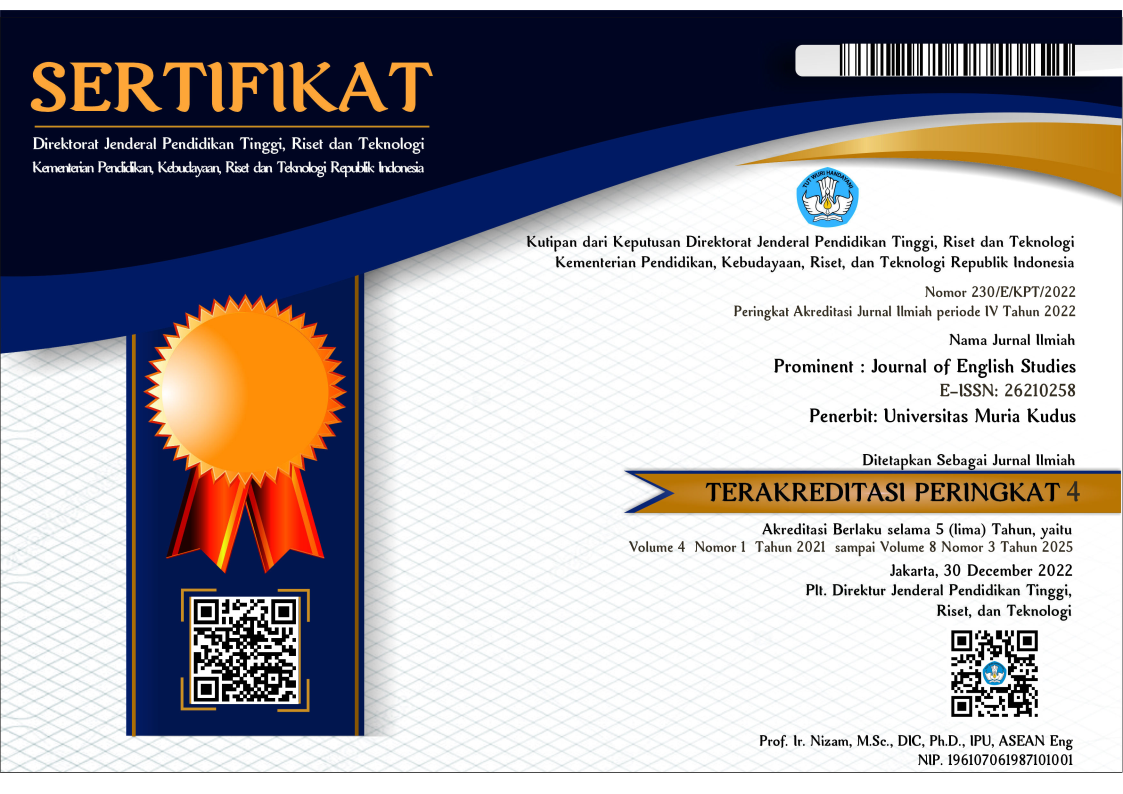THE BEST MICROTEACHING PRACTICE PLATFORM: OFFLINE, ZOOM, OR WHATSAPP GROUP?
Abstract
Keywords
References
Barron, S. (2020). Everything You Need to Know About Using Zoom. Available at https://resources.owllabs.com/blog/zoom.
Bartley, S. J., & Golek, J. H. (2004). Evaluating the Cost Effectiveness of Online and Face-to-Face Instruction. Educational Technology & Society, 7(4), 167–175.
Basilaia, G., Dgebuadze, M., Kantaria, M., & Chokhonelidze, G. (2020). Replacing the classic learning form at universities as an immediate response to the COVID-19 virus infection in Georgia. International Journal for Research in Applied Science & Engineering Technology, 8(III).
De la Varre, C., Keane, J., & Irvin, M. J. (2011). Enhancing Online Distance Education in Small Rural US Schools: A Hybrid, Learner-Centred Model. Journal of Asynchronous Learning Networks, 15(4), 35–46.
Gratton-Lavoie, C., & Stanley, D. (2009). Teaching and learning principles of Microeconomics online: An empirical assessment. The Journal of Economic Education, 40(1), 3–25.
Harpreet, B.S.A.I.T.M. (2020). Advantages and disadvantages of online & offline mode of teaching. Available at https://www.shiksha.com/b-tech/articles/advantages-and-disadvantages-of-online-offline-mode-of-teaching-harpreet-b-s-a-i-t-m-blogId-38345,.
Hill, P. (2012). What is Learning Platform. Available at https://eliterate.us/what-is-a-learning-platform/.
Littlefield, J. (2018). The difference between synchronous and asynchronous distance learning. Available at https://www.thoughtco.com/synchronous-distance-learning-asynchronousdistance-learning-1097959
Lorenzetti, J. (2013.). Academic Administration - Running a MOOC: Secrets of the World’s Largest Distance Education Classes. Magna Publications.
McBrien, J. L., Cheng, R., & Jones, P. (2009). Virtual spaces: Employing a synchronous online classroom to facilitate student engagement in online learning. The International Review of Research in Open and Distributed Learning, 10(3), 1–17.
Sarah L. & Clayton, Patti H. (2004). The Articulated Learning: An Approach to Guided Reflection and Assessment. Innovative Higher Education. (29): 137-154.
Saxena, K. (2020). Coronavirus accelerates pace of digital education in India. EDII Institutional Repository.
Singh, V., & Thurman, A. (2019). How many ways can we define online learning? A systematic literature review of definitions of online learning (1988-2018). American Journal of Distance Education, 33(4), 289–306
Sun, R., Gregor, S.,. & Keating, B. Information Technology Platforms: Conceptualization and Review of Emerging Research in IS Research. Australian Conference on Information System. Adelaide.
DOI: https://doi.org/10.24176/pro.v4i2.6459
Refbacks
- There are currently no refbacks.
Prominent Journal of English Studies is licensed under a Creative Commons Attribution-ShareAlike 4.0 International License.
Dedicated to:

in Collaboration with APSPBI:





